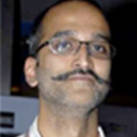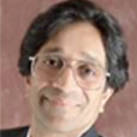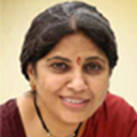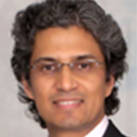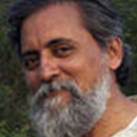Innovation in India and China

19 May 2009
20 May 2009
Time to be confirmed
GMT
By invitation only

Cambridge Judge Business School
Trumpington St
Cambridge
CB2 1AG
United Kingdom
How to create value from emerging markets
The Centre for India & Global Business was proud to partner with the Marketing Science Institute (MSI) and Blood Orange Media to host a seminar that explored the rise of India and China as both fast-growing global markets and world-class sources of innovation.
Even as the world sinks into a global recession, the Indian and Chinese economies are expected to continue to grow, on the strength of their vast domestic markets. But many Western companies struggle to devise the right business model(s) and marketing strategies that can help them penetrate and succeed in both giant Asian markets. This conference explored the best practices for innovating and winning in the Indian and Chinese markets, and discussed how the globalisation of Indian and Chinese firms are reshaping entire industries – from manufacturing to retail to film and art.

Sessions
- Winning in Emerging Markets: Lessons from the Trenches
- Bollywood Goes Global: Should Hollywood Tremble?
- Branding for China: The Role of Next Generation Consumers
- Drivers of Success for Market Entry into India and China
- How India & China Are Redefining the Global Art Market
- India and China: An Inspiration and Source for the Global Luxury Market
- Inside Consumer India: Challenges for Winning in the Indian Market
- Sourcing Innovation from Emerging Markets: The Power Of Communities
- Unleashing the Creative Potential of the Bottom of the Economic Pyramid
Winning in Emerging Markets: Lessons from the Trenches
Best Buy’s Kal Patel explains why inspiring and empowering employees is the critical for success in emerging markets.
Mr Patel’s talk begun by providing a background of Best Buy and its history to date, and went on to discuss lessons learned from Best Buy entering emerging markets such as China.
A person and an idea are connected.
What is it that companies can do for these markets to create value and create wealth for themselves?
This is all about relationships.
And what Reliance did in the partnership with Steven Spielberg is to establish a virtual studio in Hollywood.
Modernising. We are not westernising.
Trying to build this self-confident organisation that has humility is our day-to-day challenge, as leaders inside of Best Buy, and it’s pretty tough. At a store level, all the way to the corporate office, everywhere, and especially, internationally now. Don’t assume that you can create control. You have to still inspire people, no matter where you are.
So quite often when you kind of– whether it’s a leader of a company that we bought– we’ve had lots of lessons in China, and I’m happy to share them with you. And in all of that, there’s one thing, that you make an assumption that you can control the situation. When really, in the end, when you’re dealing with people, you have to inspire the situation.
Whether it’s in China or it’s back in the US. That’s more sustainable. Whereas, if you try and control it, you basically, you come unstuck somewhere along the way. You either try and put it in the contract with the founder, that they’ve got to be like this, or you try and control your store environment in a certain way. Whereas, the best thing is to inspire it.
We have this online site that we’re setting up. It’s called Idea Exchange for customers. And it’s amazing how much information they want to give. In our business, assume you ask customers, can we get more information from you? They give it to you. Customers invite you to co-create. They invite you. And you just have to take up the invitation.
And we had a joint venture with Carphone Warehouse. We brought their proposition more or less as it was because the American consumer loved it. We did all the tests and everything and said, we actually like this with our brand– so it’s Best Buy– and we put it in those five stores and we increased market share to 6% from 1%.
So we thought this is going to work. So effectively, we tried in one of two places in the next six months. And within a year, a year and a half, just like we did Geek Squad, we got it all 1,000 stores. So now across the US, you go to a Best Buy store, you have Best Buy Mobile as a proposition, which is Carphone Warehouse. So you can get Carphone Warehouse in the US.
Now, the multiple vested interest in the ecosystem is that you got Carphone Warehouse who needed to grow their retail business, and they needed to grow. And then you had Best Buy, who’s trying to reinvent their fundamental cell phone business. And then you’ve got a consumer that was just hungry for something new. And you put all of those together, right now in this recession, this is the fastest growing business we have.
At the heart of it all is a fundamental principle called customer-centricity. And that’s just a broad label. It’s not segmentation. It’s literally a deep, deep sense that a person and an idea are connected. You can’t disconnect the two. A deep, deep sense that that’s how strategy happens.
So quite often you look at case studies, you look at analysis, and you look at companies, and you tell me how Carphone Warehouse happened, I can give you a rational case of how that happened, like I just explained. But behind it were people, people that had a vested interest in a personal journey to make that happen. And if you don’t connect the two, we found that either you don’t execute fast enough, or you don’t get into new places and you don’t challenge things.
I remember when I was given the role to go and explore an international strategy beyond North America, most of the people had suggested that I look at Europe as a market. I remember coming back to the board, and I remember the board kind of saying, logically wouldn’t you think about us understanding Europe better or UK pay better? And my only logic back to the board at the time was, again, back to the Best Buy strategy, which is: a person and a point of view are connected.
I increased the chances of implementation when somebody cares about implementing. And there was a team in China that really cared about implementing it, really cared about implementing it. And we hadn’t figured out a story in Europe yet. Ethnography work is really, really interesting work when you first start off in emerging markets. I know, separately, I know, some of you guys know that really well, more so than the basic research. Because there’s no analytic, I mean, the transactional data doesn’t tell you much.
The first thing we built was a customer insight team. And we started off with a customer insight team that fundamentally created a point of view about what we wanted to do. And then after that, you built the whole machine that came after that. We had underestimated how much the emerging markets because of the scarcity that they had and how you have to create new business models and how you have to bring in to the US. In fact, this crisis in the US is forcing people to say, what I’ve been doing every day, I may have to reinvent.
I think one of the core curriculum of any business school has to be how you reinvent business models, not how you reassert them. Because you have all these shrines to different disciplines. And those shrines to those different disciplines basically reinforce all the students to say, this is how you should do stuff. Please, please train people to reinvent business models because that’s what they’re going to have to do. They have to keep reinventing them. I think working in emerging markets will help them.
Highlights
Best Buy is a 40 year old company founded in Minneapolis, USA. Today, they are a successful consumer electronics retailer with $45 billion revenues and 1000 stores in the USA.
The business started off with computer experts knocking on people’s doors, offering to repair any broken computers that needed fixing. Currently, Best Buy is the largest retailer of PC’s in the USA. Their USA strategy is to focus on the stores they currently have, as opposed to expanding in number. The last six months, since the effects of the credit crunch were felt, have been tough for Best Buy.
They also have an international presence in countries such as Mexico and China. One particular venture is soon to be launched with the popular national UK retailer the Carphone Warehouse.
Best Buy have re-branded themselves to be the “underdog” in the market in order to stimulate innovation. This is a key factor in innovating effectively, Mr Patel emphasised.
Best Buy’s biggest challenge is to sustain their high growth rate which involved finding the next big source of growth and not getting to complacent with their current success. Their current strategy is to not focus on profits from product sales, but to focus upon add-on services they can offer and to look at how their products are consumed.
Around 4 years ago, Best Buy expanded into China. They had a sourcing office based in China initially, and it was this team that were extremely passionate about expanding into the Chinese market. This passion persuaded Best Buy to expand further into China as opposed to Europe.
A lot of effort was spent in understanding the Chinese market. “Customer insight teams” spent one to two years understanding the Chinese customer’s wants and needs. This was aided by the team’s enthusiasm and passion for their work.
- Best Buy underestimated the requirement to re-invent business models to survive. Mr Patel believes this point should be emphasised more in business schools. This “re-invention” is more likely to occur when entering an emerging market.
- Another learning point was not to assume the business can control a situation to meet its requirements. The business must inspire the situation and this is a lesson that applies globally.
- The more you ask customers how you can help them, the more information they give you. Most businesses are too shy to ask.
About the speaker
Kal Patel
EVP of Emerging Business, Best Buy
As Executive Vice President of emerging business for Best Buy, a multinational retailer of technology and entertainment products and services, Kal Patel leads the company’s efforts to initiate, incubate and implement global growth opportunities while increasing the enterprise’s capabilities for innovation. He also focuses on building relationships with venture capitalists to enable Best Buy to learn from the experiences of others and quickly adapt best practices to advance the company’s business objectives.
Kal joined Best Buy in 2003 as vice president of strategy. In 2005 he was named Executive Vice President of strategy and international where he played a leading role in exploring and leading the development of growth opportunities in new markets outside North America, including the company’s retail presence in China. In these roles, Kal was also instrumental in helping Best Buy transform into a radically different retailer – one that continually innovates through the insights from employees closest to customers.
Prior to joining Best Buy, Kal was a Partner at Strategos, where he and his colleagues helped frame and implement major growth-driven transformation initiatives for clients across all industries. His clients included Aviva (formerly CGNU), Morgan Stanley, Roche Diagnostics, Whirlpool, Shell, Sonera and Analog Devices. Prior to joining Strategos, Kal worked for KPMG Consulting and Courtaulds PLC in the United Kingdom.
Kal holds a master’s degree in business administration from the London Business School. He also has a bachelor’s degree in chemical engineering from Leeds University in the United Kingdom.
Bollywood Goes Global: Should Hollywood Tremble?
Allègre Hadida believes the discussion about Bollywood going global should not strictly be limited to Bollywood. There are many other Indian film industries than have global potential. In fact, Indian cinema has always been global. The Indian film market is worth $10 billion, and we are starting to witness a cross-fertilisation of Bollywood and Hollywood.
Patrick von Sychowski is COO of Adlabs, part of the Reliance Group (more specifically Reliance Entertainment). Their mission is to access as many consumers as possible through all forms of media, not only cinema. There are some interesting trends in the Bollywood market. For example, nonstandard Bollywood films are gaining in popularity (eg horror) over the classic ‘masala’ films. India only has 201 cinema screens run by Reliance. There is a large scope for simply increasing the number of screens in India. Reliance are also doing more collaborations with Hollywood and this is slowly being witnessed in the mainstream.
Rohan Sippy began by summarising the history of his new film. He believes the first genre to go global will be tamil-telugu films, not Bollywood.
The estimated value of the Indian media entertainment industry, according to PWC, is now around $10 billion US. And it is actually– well, that’s relatively small compared to Hollywood. But this figure is actually growing at a rate of– estimated rate of between 12% and 15% a year.
The increased cross-fertilisation of Bollywood in Hollywood now seems to be increasingly a reality. We have Indian conglomerates financing Hollywood studios and getting into development deals with major Hollywood stars– Hollywood, increasingly, turning to Bollywood movies for inspiration. So should Hollywood tremble?
What companies like Warner Brothers are doing internationally, I don’t think they fear India. I think more than anything, they want to be part of the growth story.
This isn’t the first time that a foreign country has gone into Hollywood and pumped money into it. In the 1980s, we had the Japanese electronics majors– Sony, Matsushita– buying up Columbia and Universal. In the 1990s, you had French utility companies and Canadian whiskey makers going in and buying studios. And then the ’00s now, you have India coming in. But you also have more of an invisible approach. You have the German production funds, as well, which put a lot of money into it. But unlike the previous French and Japanese, they do want to own the studio. They don’t want to have the right to the Paramount name, so it’s more of an invisible presence.
And what Reliance did in the partnership with Steven Spielberg, buying out the Dreamworks production offer from Paramount, is to establish a virtual studio in Hollywood.
And really, they want to engage with the biggest creative talents, directors, producers.
And what it comes down to is what Kal Patel from Best Buy yesterday talked about. Hollywood is all about relationships. So what Reliance and Big is buying here is not have their own little studio to play with. They’re buying relationships with the key talent, the key filmmakers, the key artists in Hollywood, and that way, establish long-term value.
And by the fact that they are building more of a virtual presence, a virtual studio, it doesn’t open them to as much exposure. But at the same time, they can reap the benefits, also, by going in and partnering with the talent, and not trying to bypass studios because what they don’t want to do is go in and try to alienate the studios.
If they don’t get involved, somebody else will take their ideas and redo it.
We sell over one million DVD players a month in India. A lot of time, buyers are the ones who are actually doing the test marketing for us, showing us where the consumers are, and what they want. You know? I really think that. They’re the entrepreneurs because they’re going out and showing us the opportunities where bureaucracies and big corporations don’t get to. So we have to find a way to find– to get them legitimate copies of our movies at the right price point.
About three years ago, I met up with Warner Brothers to start a conversation, discuss this script that we had, which had a country bumpkin from Chandni Chowk in Delhi who ends up being mistaken for a reincarnated Chinese kung-fu hero.
Speaking to Kunal a little bit about the experience of working in China, which I discovered was– you know, it took us about 18 months of many bureaucratic meetings, meeting with the China Film Corporation, and lots of lunches, and polite discussions with not knowing the language. The first word I learned was guanxi, which is all about the relationships you have.
I think any Hollywood studio is going to have a tough time going into India because there are certain ways of doing things.
I think the professor just talked about the economic distance and the cultural distance that might be a factor as well. Because ultimately, it’s an instinctive kind of job. You got to back people. It’s a very people-driven business. It’s all about relationships, you know, like, yesterday, mentioning. So it has to really come from that. So if that gets a little too bureaucratic and transaction-led, it’s not going to really, in the short term or medium, work.
That’s the most beautiful thing about our cinema. You know, Javed Akhtar, the writer, said, you know, you have these states in India– Rajasthan, Bihar, and Maharashtra, and these other states. Whether you are sitting in Bihar, or here in Cambridge, or Boston, there’s something that is magical about that that makes us feel we’re part of one community. And that’s really what we look for each time.
About the speakers
Allègre Hadida
Associate Professor in Strategy
PhD (Doctorat HEC, France)
Rohan Sippy
Film Director
Rohan Sippy directed his first film in 2003, the romantic comedy drama Kuch Naa Kaho starring Abhishek Bachchan and Aishwarya Rai. “Eye-watering production values and a sparkling performance by Bollywood goddess Aishwarya Rai … an impressive debut by Rohan Sippy… (It) ranks as one of the classiest Hindi productions of the year.” (Derek Elley, Variety)
Bluffmaster (2005), Rohan’s second film, saw him team up with Abhishek again and a supporting cast of Priyanka Chopra, Riteish Deshmukh, Boman Irani and Nana Patekar. It succeeded as a slickly packaged entertaining con caper with a taut screenplay that is urbanely tongue-in-cheek. And for the first time a Hindi film featured truly international talent, including prominent Pharsi, Scandinavian and UK Asian underground artistes on a breakthrough soundtrack. Capping it was Abhishek’s singing debut “Right Here Right Now”, one of the top songs of the year, and whose video won MTV’s Most Stylish Song in Film Award for 2006.
After co-producing the sleeper hit Taxi No. 9 2 11 featuring Nana Patekar and John Abraham, Rohan produced Chandni Chowk To China, a Kung Fu song and dance action comedy featuring Akshay Kumar, Deepika Padukone and a host of Chinese and Indian talent, which Warner Bros released worldwide on 16 January 2009. He also produced the English language “indie” The President Is Coming, featuring Konkona Sen Sharma, Shernaz Patel and a host of talented stage actors, which after its release on 9 January 2009 has fast become a cult favourite with audiences and critics alike… “Savagely hilarious… a new wave in Bollywood!” (Shubra Gupta, Indian Express).
Rohan has spoken at international conferences and seminars, at Princeton University and the Wharton School among others. He has also served as a columnist for The Indian Express, as well as writing for India Today, Mint, Man’s World and Mid Day. He is currently preparing for his next film as a director, as well as developing scripts for production.
Patrick von Sychowski
Chief Operating Officer, Adlabs Digital Cinema
Patrick von Sychowski is Chief Operating Officer of Adlabs Digital Cinema, part of the Reliance ADA Group. Adlabs is India’s largest film services company and parent company of BIG Cinemas, the country’s largest cinema chain.
Patrick was previously a Senior Analyst with UK-based media research company Screen Digest where he pioneered the coverage of digital cinema and consulted on several major digital cinema projects, such as the UK Film Council’s Digital Screen Network. As well as writing, he has been active in the industry as Director of Business Development for both Unique Digital and Deluxe UK, launching the digital cinema operations of both companies. He lives in Mumbai and co-edits the blog CelluloidJunkie.com in his spare time.
Branding for China: The Role of Next Generation Consumers
The first question posed by Professor Peter Golder was “how does innovation relate to brands?” Brands are the way firms capture their innovation. Brand preferences of consumers tend to remain fairly stable over time. However, Professor Golder conducted a study to examine whether brand preferences may change over shorter periods of time in China.
His study’s methodology involved sending out questionnaires testing the recall of different brands. These were sent to approximately 500 university students at a particular university in China. The study examined various brand categories such as shoes, mobile phones, shampoos, etc.
Highlights
- Many people did not know whether their mobile phone was an international or domestic brand. However, over time, more people are becoming more aware of whether a brand is international.
- People equally trust and have knowledge of international and domestic brands.
- The factors, in order of importance, which affect brand recall are:
- quality
- friends
- family
- advertising.
- Quality is the key driver in recalling a brand in China. Advertising is not as important.
- Brand preferences do seem to change over short time periods.
- Many people are unaware of whether a brand is international or domestic.
What are the next big trends in China? Kunal Sinha suggested a few answers to this question, including:
- Beauty – there are over one million cosmetic surgeries/year in China. Many Chinese are increasingly interested in beauty products and services.
- Internet – there are 300 million internet users in China. This is a great opportunity to communicate with consumers.
- Food – there is a huge diversity of food wants across the country.
Ogilvy & Mather segment the Chinese market according to cultural differences and languages spoken.
Six market segments were identified by Mr Sinha as the next big generations of consumers in China:
- 312 million children under the age of 15
- 143 million people above the age of 60
- The creatives
- The revivalists
- The expressionists
- The cynics
Mr Sinha gave examples of some striking statistics and trends for each of the above segments.
Speakers
Peter Golder
Professor of Marketing and George and Edythe Heyman Faculty Fellow, New York University’s Stern School of Business
Peter Golder is Professor of Marketing and George and Edythe Heyman Faculty Fellow at New York University’s Stern School of Business. He has also held faculty appointments at UCLA and Peking University’s Guanghua School of Management. His primary research interests include new products, market entry, branding, and global marketing strategy. He has published many papers in leading academic journals including Marketing Science, Journal of Marketing, Journal of Marketing Research, and Management Science. His research has won five best-paper awards and been featured in The Wall Street Journal several times, as well as in The Financial Times, The Economist, Advertising Age, and other publications. He is the co-author of Will and Vision: How Latecomers Grow to Dominate Markets, which won the Berry Book prize and was also selected as one of the Top Ten Books of the Year by Harvard Business Review. He has appeared on CBS, CNN, and the Nightly Business Report to comment on business news stories.
Professor Golder has six years of professional experience in the aerospace and oil industries and has advised large and small companies on issues related to his research specialties. He received his Bachelor of Science in mechanical engineering from the University of Pennsylvania and his Doctor of Philosophy in business administration (marketing) from the University of Southern California.
Kunal Sinha
Ogilvy & Mather
Kunal Sinha is in charge of consumer insight & knowledge management function across all divisions of the company. He previously held the same responsibility in India.
He graduated in Physics (Hons) from Banaras Hindu University; followed by Post Graduation from Indian Institute of Mass Communication, New Delhi. He has spent almost 20 years in the advertising profession, mostly in the account planning and consumer insight functions, working in JWT & McCann-Erickson, besides Ogilvy. Ten of those years were spent in designing strategies for low-income communities. Kunal set up the consumer insight function at Ogilvy in India, pioneering the use of innovative methodologies such as media ethnography, semiotics and participant observation. His work encompasses trendspotting, cultural analysis and forecasting.
He is a six-time winner of the international WPP Atticus award for original thinking in the marketing services. He won the Grand Prix twice, in 1996 for his paper ‘Communication Effect – A Re-evaluation of Beliefs’, and in 2004 for ‘The Future of Technology and its Impact on our Lives’. In 2008, his book China’s Creative Imperative was a winner in the strategy category. He received Highly Commended certificates in 1997, for ‘Children as Communicators’ and 2003 for ‘Ogyani – Knowledge, Entertainment, Networking’. Kunal won the Best Paper at the Market Research Society of India conference in 2004 for his media ethnography work, and Best Paper for ‘New Trends and their impact on business and society’ at the 8th International Entrepreneurship Forum, organised by the University of Essex and Mudra Institute of Communications, Ahmedabad in 2008. He presented a paper on Marketing to India’s Underserved Consumers at Harvard Business School; the paper appears in the book, Business Solutions for the Global Poor, published by Jossey-Bass in 2007. Kunal wrote the afterword to Syracuse University professor Tej Bhatia’s book, Advertising & Marketing in Rural India. The chapter describes innovations in rural marketing in India.
He has been adjunct faculty at the Indian Institute of Mass Communication, AICAR Business School and National Institute of Advertising; and an invited speaker at London Business School, Kent State University, Johns Hopkins University, Mudra Institute of Communications, Peking University and Syracuse University. He has also conducted workshops on consumer insight at several graduate communication schools; as well as at Ogilvy. He was listed in the millennium edition of the Who’s Who in the World and has authored a large number of papers and articles in academic and business journals, and business newspapers across continents; he is an invited columnist for Advertising Age China. Kunal has spoken extensively at marketing and advertising events organised by WPP, Ogilvy, business schools and the media.
Kunal enjoys leading a double life – in his other one, he has published three books, ‘An Ordinary Traveller’, about travels in south Asia and ‘A Banarasi on Varanasi’, an insider’s perspective on the holy city, and ‘China’s Creative Imperative – How Creativity is Transforming Society and Business in China’. His photographs have appeared in Shots and Holiday Travel India.
Kunal lives in Shanghai with his wife and two children.
Drivers of Success for Market Entry into India and China
In recent years, firms have been rushing to start new business in India and China, however there has not been enough research conducted on what factors drive success and failure in companies entering such countries. Gerard Tellis undertook a study to identify some of these factors.
The two broad categories of factors proposed by the study include – (1) Firm Factors; and (2) Country Factors. Seven specific factors were examined for companies entering India or China.
Highlights
All 7 fall within the 2 aforementioned categories, each one being correlated to “success” (measured on a specially designed five point scale ranging from the market entry being successful to failure) of the business entering the market:
- Entry Mode – Joint venture or opening a subsidiary
- Entry Timing – Early or late entry
- Firm Size – Large or small
- Economic Distance
- Cultural Knowledge – How well can you understand consumers?
- Country Risk – Uncertainty about the political and economic environment
- Economic Openness – The lowering of regulatory barriers
Each of the above factors had a specific rating scale devised for the study.
The methodology was to search press archives for key words. A sample size of 192 firms was used, with 64 of those Indian and 128 Chinese. The results of the study were as follows:
- Companies are less likely to succeed when entering India as compared to China
- The greater the economic distance, the lower the success rate
- The greater the cultural distance, the lower the success rate (especially in India)
- Smaller companies are more likely to be successful than larger
- Wholly owned subsidiaries are more likely to succeed than Joint Ventures with local companies. This was the most unexpected result observed.
- The greater the lateness of entry, the lower the chance of success (especially in India)
- The greater the country risk, the lower the success rate
- The higher the country openness, the lower the success rate due to increased competition.
In conclusion, the opening up of India and China’s economies does not mean business success will get easier. Small companies should not be deterred from entry and partnering with local organisations may not be the best option.
About the speaker
Dr Gerard J Tellis
Trustee, Marketing Science Institute; and a Senior Research Associate and Visiting Chair of Innovation, Marketing, and Strategy, Cambridge Judge Business School
Dr Gerard J. Tellis (PhD, Michigan) is an expert in innovation, new product growth, global diffusion, market entry, advertising, quality, and pricing. He has published four books and over 100 papers that have won over 15 awards, including the Frank M. Bass, William F. Odell, Harold D. Maynard (twice), and the Vijay Mahajan award for lifetime contributions to marketing strategy.
Dr Tellis is a Trustee of the Marketing Science Institute and a Senior Research Associate and Visiting Chair of Innovation, Marketing, and Strategy at Judge Business School, Cambridge University, UK. He has also been a Visiting Fellow of Sidney Sussex College, Cambridge University, and a Distinguished Visitor, Erasmus University, Rotterdam. Previously he worked as a Sales Development Manager for Johnson & Johnson. Dr Tellis is an Associate Editor of the Journal of Marketing Research and has been on the editorial review boards of the Journal of Marketing Research, the Journal of Marketing and Marketing Science for several years.
How India & China Are Redefining the Global Art Market
Ms Ghosh-Mazumdar is a specialist in Indian modern and contemporary art. The Indian art market has been growing extremely fast in the past few years. But what do we mean by modern Indian art? A few example artists include: Abindranath Tagore (1871), Jamini Roy (1887), Amrita Sher-Gil (1913), M.F. Hussain (1915), F.N. Souza (1924) & Subdoh Gupta (1964) – dubbed the “Damien Hirst of India”.
Who collects this art? Mostly Non-Resident-Indians (NRIs) from the USA and UK. NRIs are the wealthiest ex-pat community in the USA, and it is this community that has fuelled the market growth for Indian art. Item prices tend to be in the $60K range.
In 2000, India’s first ever art house, Saffronart, was launched. Between 2000 and 2005 many new galleries have opened in India. It was around 2006 that the art market really took off, and Sotheby’s total Indian art sales value was around $34M. By this time ‘contemporary Indian art’ had emerged as a separate category from ‘modern Indian art’.
A person and an idea are connected.
What is it that companies can do for these markets to create value and create wealth for themselves?
This is all about relationships.
And what Reliance did in the partnership with Steven Spielberg is to establish a virtual studio in Hollywood.
Modernising. They are not westernising.
Since I joined Sotheby’s in 2003, I had the good fortune to witness two of the biggest moving markets in 21st century auction history, those of contemporary and modern Indian and Chinese art. Visits to art galleries in Mumbai and Delhi are now par for the course for museum groups and upscale tour groups visiting India. In Beijing as well, the 798 Art District is a must for all tourists these days. Change has occurred very rapidly, and we have a lot to learn from our clients’ preferences and tastes, which can change pretty quickly.
In the Hong Kong sale that we had earlier this year, the most popular selling category was wine. We sell Chinese art in Hong Kong, traditional and modern. We sell jewellery, watches and wine. But wine was the most popular. So the point I’m trying to make is that in these new markets you never can make assumptions. You cannot make assumptions. You have to keep your ear on the ground. You have to keep your eyes open. And you have to modulate your strategy according to what the client wants, what the buyer wants.
By the way, at Sotheby’s, we do not call India and China emerging markets. We call them new markets. Because at this moment, these markets have emerged, and they’re actually at a phase of maturity in their growth cycle.
In 1995, a selection of 219 paintings from their collection was offered for sale at Sotheby’s New York to benefit the Chester and Davida Herwitz Charitable Trust, and Indian art was catapulted onto the international auction arena. Now, in preparing for this auction, my colleagues at Sotheby’s had no existing database of buyers to rely on.
So they went to the Manhattan telephone directory, among other things, looking for the names of Indian doctors and so forth to try to build a list of recipients for a catalogue. So this is what we do in the auction world. This is what we do in auction houses to create a market. It doesn’t come out of the vacuum.
Saffronart, India’s first online auction house, and Osian’s, India’s first homegrown auction house were founded. These businesses were dedicated solely to the promotion and sale of modern Indian art. Saffronart’s success coincided not only with the rise of internet usage in India, but also with the liberalisation of the Indian economy, which was in full swing by this time, resulting in the creation of new wealth in India.
2005 was a watershed year because it marked the moment when the market really took off. Most importantly, it had become clear that Indian art had now become an asset class. A number of art funds were established in India, and they were aggressively acquiring assets for their investors.
In 2006, an iconic work by Damien Hirst would cost anywhere between $500,000 to a million dollars. But you can get an iconic work by Subodh Gupta for $100,000 or a little bit over. So this is a big difference in value. The price differential made contemporary Indian art a very attractive buy to international buyers.
Between 2007 and ’09, the modern Indian art market experienced its peak, and is currently entering its mature phase, as I said. So this is where demand was outstripping supply. Now it’s beginning to even out and mature, so that we are controlling supply.
About the speaker
Anuradha Ghosh-Mazumdar
Assistant Vice President and Indian Art Specialist, Sotheby’s New York
Anuradha Ghosh-Mazumdar joined Sotheby’s in October 2003. She runs the Indian and Southeast Asian Art department in New York and does research and business development for Sotheby’s sales of Modern and Contemporary Indian Art in New York and London. Prior to joining Sotheby’s, Ms Ghosh-Mazumdar worked at The Asia Society in New York. In 2001, she completed her masters in Museum Studies from the Fashion Institute of Technology in New York and also holds a masters degree in Ancient Indian Art History & Archaeology from the University of Calcutta, India.
India and China: An Inspiration and Source for the Global Luxury Market
Professor Ashok Som began by explaining about the luxury industry, then the India & China markets, finishing with a comparative analysis of the two: What is luxury? It is wholly defined by the consumer. Hence, its definition is constantly changing. However, just to cite a few examples of widely accepted ‘luxury’ brands – Prada, Chanel and Louis Vuitton. The core values associated with such luxury brands are rarity and excellence. In terms of positioning, luxury brands tend to be inaccessible and niche with their customers being the exclusive elite.
The Indian luxury market is growing quickly. 60% of India’s wealthy live in its eight major cities. Of these, one million top consumers could be classified as ‘luxury’. The Indian luxury market could be classified into 3 segments – Old wealthy, emerging wealthy and novae rich. The problem of foreign luxury branded items in India is that the Indian market is not educated about these brands, and hence do not perceive them particularly highly.
In China, 1.6 million people would be considered “wealthy”. By 2015 this segment is predicted to grow to four million. The wealthy Chinese are a globally unique segment – they are 20 years younger than the USA market, they are more educated and are mostly self-employed.
Comparing India and China, it seems China has a more mature luxury market, India’s is still very young. China is more liberal than India in doing business.
A person and an idea are connected.
What is it that companies can do for these markets to create value and create wealth for themselves?
It’s all about relationships.
And what Reliance did in the partnership with Steven Spielberg is to establish a virtual studio in Hollywood.
Modernising there, not Westernising.
Thanks so much for coming to Cambridge and sharing all of your insights with us.
Oh, it’s my pleasure.
So Manish, how have you differentiated yourself so that you’ve been able to take your brand and your designs international?
The idea was to take India the way it is and twist it and modernise it, and take it to international level, to West because that’s what they understand. They will not probably understand me if I go to UK, or to France, or to anywhere else outside of India with a collection of clothing, which is very India.
It’s a very thin line of taking out things which are ethnic but still keeping the techniques and making it into a way that it can be understood by our people in the West. And that’s what I tried to do.
So are you finding that the international brands are learning from you, from your style?
When they come to India to work, they try to take the embroidery part of it, but they don’t be very creative in it. Because also, the price is a big factor because they come to agents, and then agent comes to another agent. And then finally it goes to a factory where they get made. So it’s far more expensive than me doing it directly in my office with the embroiderers. You know? So I have that advantage.
So I don’t think they would want to learn anything from me. But yes, I know for a fact that my clothes, my photographs of my clothes have been taken as references for many big brands for embroideries. I also know that because– a very close friend of mine, he’s in the same business, who is Italian. And he works in India. He does embroideries for all the major brands. And he’s got many times references of my clothes as example of embroidery.
You’ve collaborated with several international brands– Reebok, Swatch, MAC. How did these relationships evolve?
Reebok happened by chance. This was the first collaboration. And when I did that, I realised the potential of collaborating because I was, at the same time, looking at getting out of India and showing my work in London. And I realised that, as an individual, it’s very difficult to make people aware of me.
So what I realised was a good idea was to tie up with these companies, like, for example, what a Swatch can do for me, I can’t do for myself. I can’t have probably TV commercials on MTV worldwide on my own. I will never be able to afford it, I think.
My show videos, if you search on YouTube, there will be about– let’s see, about 200 links or 200 videos. But when I do my shows on MAC, there will be about 2,000. So that’s the kind of difference I realised. And that’s what I tried to do with these brands.
And even the new collaboration with Nivea, which is just coming out in a month or so, that even goes to about 5 and 1/2 million people. And that is just the product. Then after that, there will be reactions on internet. There will be YouTube, and there will be press. I could not have done that just by myself.
Do you think these international brands are looking for more Indian designers? Are they ready for additional collaboration? Or do you think they’ll keep the focus pretty limited?
You know, I think they look for collaborations. If they identify the person to have the right association with the brand. Swatch found me. They saw an article on me in Le Monde, which is a French newspaper. So also, your style has to match the product you collaborate with.
And at the moment, I could say that Indian designers are very ethnic, very Indian. So what will happen is that these brands will not like to associate with them because these guys would be limited only to India, whereas in my case, there’s an advantage of my style being understood by people, not just in India, but people all over the world. And that’s what worked for me.
Brilliant. Thank you, Manish.
– Thanks a lot. Pleasure.
[MUSIC PLAYING]
About the speakers
Manish Arora
Indian fashion designer
Manish Arora is the first Indian fashion designer to make his brand global. He launched his self-named label in 1997 and since then he has exhibited at the London and Paris fashion weeks. He has many global distributors, with four of his own stores in Delhi.
Mr Arora’s strives to modernise Indian fashion, not westernise it. It is a lack of appreciation for this, he feels, is the reason why other Indian designers have not succeeded globally. His designs employ traditional Indian materials, embroidery, designs, colours and production skills. However, the overall designs are non-traditional and hence appeal to a more global audience.
After collaborating with a number of international brands such as Reebok, Swarovski, Swatch, MAC, Disney and Nivea, Manish has used these collaborations as a strategy to build up an international brand reputation which he would have struggled to do any other way.
Ashok Som
Associate Professor, ESSEC Business School
Ashok Som is Associate Professor at ESSEC Business School, Paris-Singapore. He is the founder of the India Research Centre at ESSEC, Director of the Global Management Programs on Luxury and Retail Management (in partnership with Indian Institute of Management (IIM) Ahmedabad) and co-ordinator of the module Managing International Business.
Ashok received his PhD from the Indian Institute of Management (IIM), Ahmedabad, MSc and MTech from the Indian Institute of Technology, Kharagpur, and bachelors degree from Presidency College, Calcutta, India. His three main research areas are in organisation re-design, innovative HRM and innovation in Asia. His research has been published in Human Resource Management, International Journal of Human Resource Management, Asia Pacific Journal of Management, European Business Forum, and Thunderbird International Business Review, to name a few. He has authored more than 30 case studies which have been widely referred, published and respective best-sellers in their fields. He is a Visiting Professor at GSB, Keio University (Tokyo), IIM Ahmedabad (India), Tamkang University (Taiwan), AUT University (New Zealand). He has been featured in Who’s Who of the World (2008, 2009). He was nominated as one of the 2000 Outstanding Intellectuals of the 21st Century in 2008-2009. He is the author of the book Organization-Redesign and Innovative HRM, Oxford University Press (November 2008) and International Management: Managing the Global Corporation, McGraw Hill (forthcoming August 2009).
Inside Consumer India: Challenges for Winning in the Indian Market
Many western corporations are trying to “transplant” business models in emerging markets and come back with “bloodied noses”. Perhaps the question we should be asking is not how to create value from emerging markets, but how to create value for emerging markets.
In India, many basic consumer needs are going unmet. Large MNC’s are still failing to address these needs. Why? Due to misassumptions made by MNC’s such as – (1) Assuming all emerging markets evolve in the same way; (2) The value-arrogance of MNC’s in assuming all consumers want modernity; (3) Theory of income thresholds; and (4) Targeting high class market first, then the masses.
A person and an idea are connected.
What is it that companies can do for these markets to create value and create work for themselves?
So it’s all about relationships.
And what Reliance did in the partnership with Steven Spielberg is to establish a virtual studio in Hollywood.
Modernising– we are not Westernising.
If you actually look at where the future of the next trillion dollars of India’s GDP is, the first trillion dollars took us 62 years. The next trillion will take us eight to 10. Well, we have a consumer society defined in terms of high aspiration with a total and spectacular failure of public goods and an absence of public goods– education, health care, power, infrastructure.
We have monster consumers who don’t know that they can only get this much benefit at this much cost. They’re saying I will pay only so much. And I want a hell of a lot more. And if you deliver it, you deliver it. If you don’t deliver it, I don’t want it.
The monster consumers also have seen over the last 10 years in India, we’ve had taxes coming down, prices coming down, simultaneously quality going up. So these are the people who are going to come into the workplace or the home place, the next generation, very shortly. And I think we really have a disaster on our hands.
The second economic challenge is that you have many, many Indias. They are increasing in number. We thought once upon a time that as India got richer, we would actually have a more homogeneous country. We now know that everything from our politics to our festivals to everything else, you have a more heterogeneous country.
So I think if you look at all these Indias, and they’re continuing to increase, and the regionalisation you require for your complexity, which is way ahead of what the market is currently worth. Putting all these things into perspective, I think the question is what is it that companies can do for these markets to create value for these markets and create wealth for themselves.
Similarly, if you look at the retail, everybody says, well, what about modern retail? And I think the question is modern according to whose logic? If you go to the local retailer next door in my house, he actually called me when my daughter went off to college. And he said are you buying from someone else? And I said, no.
And he said, well, there’s no ketchup. There’s no Maggi noodles. There’s no cheese. There’s no iced tea. And he had a list of five items that only my daughter consumed. He did this without the benefits of CRM.
[LAUGHTER]
He has his own particular way to do it. What’s more, if there are two pieces of a particular brand– if there’s a particular brand that I drink, he will keep those two pieces for me, whereas the supermarket nearby will tell you how, in terms of logic, it doesn’t work. Which means that the question most agencies ask, when will the ugly duckling evolve into the familiar, beautiful swan, and when will India be ready for my global strategy? The answer is probably never.
I think the question really is when will you as a company be ready to be able to marry your competencies to what the market wants and create a whole new market. If you want to be part of a trillion dollar journey, then you cannot say I will only target class and not mass. You have a whole lot of people who on a little bit each who buy a little bit each. And that adds up to one hell of a lot.
The bottom 60% of people, who earn less than $2 a day, actually control one-third of India’s income and a lot more of expenditure because the poor don’t save. The rich do. When you have 10 kids who’ve gone through college with one photo spectrometer, they learn how to do things very quickly in the short period of time they have. And that’s really where it all comes from.
So on the one hand, consumers are good at extracting value. On the other hand, poor is not backward. I think that’s something most people forget. The poor embrace technology. Low income people love technology. Technology democratises.
The ATM doesn’t care whether I’m withdrawing two rupees or 30 rupees. Who’s going to build, participate, and build the road? Who’s going to invest in innovation that’s going to take time? Who’s going to support multiple strategies ahead of their time? And who’s going to actually provide advanced solutions for this crisis?
[MUSIC PLAYING]
Highlights
The major challenges that will be faced for companies looking to enter India include:
- Massive scale – adapting business models to the low margin, high volume model. Most business models are made for the opposite.
- Complex market portfolio – India’s market is getting increasingly complex and diverse. Companies must know which sub-segment they intend to target.
- The rural poor will not accept poor technology – they are not backwards as many firms assume. The mobile phone is India’s “central nervous system” and it has the power to revolutionise India.
- Economic challenge – providing low price goods at reasonable performance. Consumer variable cost is the “silver bullet”.
A key strategy for companies is that investments in India must be long term for payback. Businesses must re-examine their traditional business rules regarding scale, cost and price. Finally, it is important to note that consumers innovate far better than companies, hence co-innovation with consumers is also key.
About the speaker
Rama Bijapurkar
Leading Market Strategy Consultant, Author & Independent Director
Rama Bijapurkar is India’s most respected thought leader on market strategy and consumer issues. She has her own consulting practice and works with a range of companies from global majors to interesting start-ups, advising them on their business-market strategy. She has engaged with several Fortune 500 companies on their emerging market strategies and is author of We Are Like That Only: Understanding the Logic of Consumer India, which is widely acknowledged as the most comprehensive ‘take’ on what it takes for winning in the Indian market.
She serves on the boards of several leading Indian companies including Infosys, CRISIL (a Standard & Poor’s Company, India), Godrej Consumer Products Ltd, and more. She is also a visiting faculty and a member of the board of governors at IIM Ahmedabad, her alma mater.
Sourcing Innovation from Emerging Markets: The Power Of Communities
Peter Williamson believes there are some very important lessons MNC’s can learn from China. The most important of them is cost-innovation. Cost-innovation can be defined as focussing on delivery a step-change in value for money. There are three aspects to this. For each aspect Professor Williamson offered a real example. The three aspects are:
- High tech markets must be rapidly applied to mainstream markets (eg the case of digital direct X-ray equipment).
- A high variety of products must be offered are low cost. Traditionally this is done at high cost (eg Shanghai Port Machinery).
- Niche products must be re-engineered to serve a mass (not niche) market (eg Haier’s Wine Cooler).
- In conclusion, what can we learn from China? To change our notion of what innovation is. What can western MNC’s do to succeed in China? Match the cost innovation of local companies and form joint ventures with local businesses.
A person and an idea are connected.
What is it that companies can do for these markets to create value, and create wealth for themselves?
This is all about relationships.
And what Reliance did in the partnership with Steven Spielberg is to establish a virtual studio in Hollywood.
Modernising. They are not Westernising.
Guru, thanks a lot for coming to Cambridge to speak at our conference. And thank you also for agreeing to do this interview. What makes India special for IBM? In general, but particularly from an innovation perspective?
India is, indeed, the second largest organisation of IBM overall. Not just the research part of it, but the overall organisation. There is a very vibrant domestic market that IBM wants to get into.
There are a lot of great opportunities for delivering services to our global clients from India, given the amount of talent we have there, and given the amount of capabilities and infrastructure we have there for services. So IBM has decided to strategically invest several billion dollars, in fact, over the next several years to build up that capability and to make it a strategically important cog in the overall IBM wheel.
Understanding the needs of people who have a very different perspective on life, designing technologies and business models around those technologies to address that kind of market is opening some new doors for IBM. The main focus areas that we have for our Indian group, I would say it’s two major areas, emerging mobile solutions, and service delivery technologies. One is how to use the mobile phone as a platform for delivering a whole range of services.
The other major area is, how do we make this idea of global delivery, of services to our vast customer base around the world more effective and more efficient?
During your talk you had told us about Spoken Web. Could you say a little bit about that again?
The Spoken Web is a very special project for us, because it has opened a potentially new opportunity for IBM to enter into these kinds of emerging markets. We have experimented with the Spoken Web now with several small pilots around the country. We think that if we were able to scale this platform to the emerging market scenarios that we’re interested in, we would be able to dramatically transform the kind of IT services that were available to these markets, just like how the regular worldwide web transformed the way the developed world approached IT based services.
Who gets to pay for it? Do consumers pay for it? Do you get other corporates to partner with you in paying for it? Or do governments get involved?
There’s going to be aspects of it that will be provided potentially freely by public service organisations, governments, or NGOs, and so forth. There’ll be aspects of it that will be privately delivered.
People talk about some of the challenges in terms of access to talent. You mentioned not many PhD students coming out potentially from top institutions. Are these challenges for India? And would they have an impact on IBM going forward in terms of innovation?
They are definitely challenges for IBM. And not only for IBM. For the rest of the IT industry. There is a lot of investment in terms of developing the talent. And one example I’ll pick over there is this whole idea of service science that is a key new discipline, we believe, to develop talent for addressing the needs of IBM definitely, but not only IBM for the entire IT industry in India, where we think we need to build the right programmes in academia around the country to generate people who have a deeper understanding of what it means to deliver services and design services so that when they get into the industry, they can be productive from day one.
We’d like to invest more in these kinds of partnerships with institutions to have a long term pipeline that has developed.
[MUSIC PLAYING]
Highlights
Guruduth Banavar argues that IBM define innovation in a number of different ways. They adopt a predominately open, collaborative and global approach to innovation. IBM have a four pronged strategy towards innovation:
- Global innovation outlook
- Global technology outlook (three-seven year plan)
- IBM research agenda
- Execution of (1) – (3)
IBM teams are located near to where the problems are occurring on the ground in all countries including India. India is regarded as the global innovation hub, and IBM are engaging in grassroots innovation projects.
One such example is the “spoken web” project. Only 20% of the population use a PC, however a much larger proportion use a mobile phone. Clearly, the PC and mobile phone gap needs to be bridged in order to allow those non-PC users the access and benefits of the world-wide-web. In order to achieve this, IBM are creating a “parallel” internet for mobile phones in India called “spoken web”. This is because Indians prefer speaking to emailing as well as the fact that much of information available on the internet would not be useful to many rural, low income Indians. They would simply want local information about local services and products.
With the spoken web system, villagers can create a “voice-site” (similar to a website) which other people can access via a mobile phone. For example, a plumber could advertise his services on a “voice site”, others could access his site via a mobile phone at any time, and ring him for his services.
Mr Banavar predicts that “the mobile phone will have the same transformation power on society in India, as the Internet did in the West”. The biggest challenge of sustaining high quality R&D in India, is being able to hire high quality leaders. There is a distinct lack of Indian computer science PhD students, for example. Other challenges are concerned with global strategy, IP, and operations. However, IBM’s key success factors in Indian R&D include proximity to the market, open innovation strategy, and retaining the flexibility to respond to new opportunities.
About the speakers
Guruduth Banavar
Director, IBM India Research Lab and Chief Technologist, IBM India / South Asia
Dr Guruduth Banavar is the Director of IBM’s India Research Laboratory (IRL) and the Chief Technologist of IBM India / South Asia. IRL is one of the eight labs of the global IBM Research organisation, which is the leading industrial research organisation in the world. IRL has a broad and deep portfolio of research projects, with a major focus on mobile systems and service delivery. IRL’s researchers take a multi-disciplinary approach to solve problems in these domains, bringing to bear our world-class technical leadership in computer science, mathematical science, and the emerging area of service science.
In his additional role as Chief Technologist of IBM India / South Asia, Dr Banavar is setting the technology leadership agenda for this key geography of IBM’s global business. The key elements of this agenda include addressing the unique technology needs and opportunities of this market, as well as enhancing the vitality and advancement of the technical population within this second largest IBM community in the world.
Previously, Dr Banavar was a senior manager at IBM’s Thomas J. Watson Research Center in New York, which he joined in 1995 after his PhD. His broad technical interests and contributions have been in Service Science, Pervasive Computing, Distributed Systems, and Programming Models. Dr Banavar has published more than 40 research papers in top international forums, invented more than 25 US patents, chaired major international technical conferences and workshops in his research areas, served on PhD committees and on the boards of international government, educational, and industrial organisations.
Peter Williamson
Visiting Professor of International Management, Cambridge Judge Business School
Peter Williamson is Visiting Professor of International Management at Judge Business School. Prior to joining Judge Business School, Professor Williamson was ten years with the Asian Business and International Management faculty at INSEAD (1997-2007).
Professor Williamson has been Non-Executive Chairman of the Board of Directors of the macro hedge fund manager Tactical Global Management since 2001, Non-Executive Chairman of computer-based training company Imparta Ltd since 1997 and of energy consultants Energy Edge Ltd since 2004. Professor Williamson was formerly with the Boston Consulting Group in London and Merrill Lynch Inc in London, Singapore and New York.
Unleashing the Creative Potential of the Bottom of the Economic Pyramid
There are three factors needed for creativity: innovation, enterprise and investment. These three need not be sourced from the same place, however it is these three factors that will lead to successfully being able to tap creativity at the bottom of the pyramid.
Professor Gupta believes that grass roots innovations should be going global. He also believes that innovation emerges from people who do not have the resources to innovate.
Many examples of this have been documented by Professor Gupta and his network, and a few were cited here including:
- A ribbed cooking which improves the heat transfer of the pan and could find application in higher income markets
- Modified bicycle to easily carry heavy goods
- Antibiotic wall coating to prevent mould from growing on the outside of buildings
- A simple and low cost pressure cooker based coffee machine
Highlights
All of these innovations have been created by rural Indians living on low incomes with inadequate resources, as compared with western standards. Many of these innovations can find applications at the top-of-the-pyramid. They also prove that high technology can emerge from low technology solutions. All that is required is to combine official scientific research into these innovations in order to scale them further (eg via collaborations with universities).
Innovation for inclusive development is important for India. To achieve this we must recognise, respect and reward grass roots innovations as well as providing further technical support and research to further these innovations. The biggest issue currently faced in this area, is that there is a global silence in grassroots creativity.
The strategy for engaging the Bottom-of-the-Pyramid should entail 3 factors:
- Ensure the grass-roots innovators are not punished for their innovations. Let other companies scale up the innovation, don’t necessarily force the inventor to become an entrepreneur.
- Support and reward the entire eco-system involved in the innovation process eg the innovator, his/her family, the local community that enabled his/her work.
- The big challenge is to make every consumer into an innovator.
Simone Ahuja screened a video she produced which documented Professor Anil Gupta’s (IIM) activities regarding grass roots innovation in India. Two case studies were filmed including the story of an Indian villager who has become a successful self-made entrepreneur by inventing and manufacturing a small ‘clay fridge’. Selco, an Indian rural solar energy company were also documented.
About the speakers
Anil Gupta
Indian Institute of Management, Co-ordinator, SRISTI and Honey Bee Network, and Executive Vice Chair, National Innovation Foundation
Dr Anil K. Gupta received his PhD in 1986 from Kurukshetra, and his MSc in Genetics from HAU, Hisar, in 1974. He is a Fellow of both the National Academy of Agricultural Sciences and the World Academy of Art and Science.
Anil is editor of the Honey Bee Newsletter, which promotes people-to-people networking and represents the voice of creative grassroots innovators for the last twenty years. He has published extensively in national and international journals, books and magazines, and has acted as consultant to several national and international organisations.
Anil established the Society for Research and Initiatives for Sustainable Technologies and Institutions (SRISTI) in 1993 and the Grassroots Innovation Augmentation Network (GIAN) in 1997; the NGOs support the Honey Bee Network and scale up and convert grassroots innovations into viable products respectively. In 2000 Anil also helped set up the National Innovation Foundation (NIF) by Department of Science and Technology, Government of India, to make India an innovative and creative society and a global leader in sustainable technologies. NIF has mobilised more than 100,000 innovations and traditional knowledge practices from over 540 districts of India, the largest database of its kind anywhere.
Anil was chosen by the leading weekly India Today as one of the country’s 50 Pioneers of Change (along with seven other grassroots innovators who made it to the list). He has received numerous awards over the course of his career, including the Bharat Asmita Acharya Shrestha National Award 2006 from MIT School of Management, Pune, in recognition as the Best Management Teacher, the Padma Shri National Award 2004 from the President of India for distinguished achievements in the field of management education, and the Star of Asia Award from Business Week in 2001.
Simone Ahuja
Principal, Blood Orange Media, and Film Director
Dr Simone Ahuja is the founder and principal of Blood Orange Media, a vertically integrated media company based out of Minneapolis, USA and Mumbai, India. Most recently she created, directed and produced the Best Buy supported television series, Indique – Big Ideas from Emerging India. For the series, she journeyed through India’s teeming metros and innermost rural communities to explore how innovation from India drives socio-economic development on the subcontinent and around the world. Meetings with CEOs of MNCs as well as grassroots entrepreneurs heralding bottoms-up, small scale innovation gave her an authentic, on the ground look at methods of innovation employed in India and the drive behind it. Indique – Big Ideas from Emerging India is scheduled to air on PBS in the US later in 2009 and on a variety of outlets internationally.
Simone’s cross border media company, Blood Orange, develops, produces and distributes documentary films and television programs in genres that include travel, business, history, lifestyle, and world culture. The company’s presence on two continents contributes to Simone’s rich understanding of the strengths of teams in the US and India, and how those complementary strengths can be leveraged. She has presented to and consulted with trade delegations, museums and Fortune 100 companies including Honeywell and Best Buy. Simone is also a consultant to the Centre for India and Global Business at Cambridge Judge Business School, University of Cambridge.
Dr Ahuja is based out of Minneapolis, USA, and Mumbai, India.




